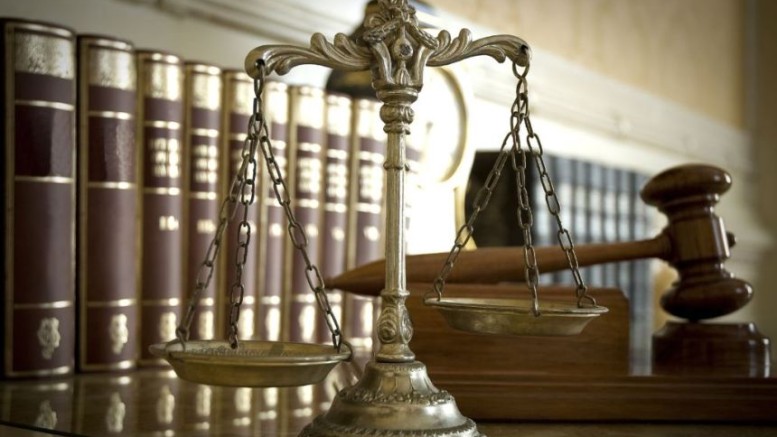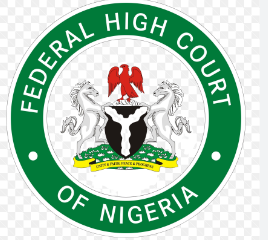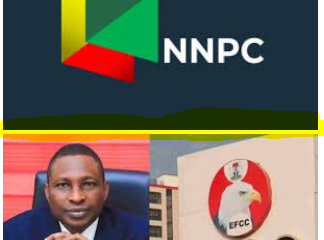Comments and Issues
Legality of “special courts” for corruption cases
Published
8 years agoon
By
Olu Emmanuel
By Chris Akiri
ON Monday, 18th September, 2017, the learned Chief Justice of Nigeria (CJN), Justice Walter Nkanu Samuel Onnoghen, at a special session organized to usher in the 2017/2018 Legal Year and to swear in 29 new Senior Advocates of Nigeria, ordered the Chief Judges of courts in Nigeria to designate at least one court in their jurisdictions as a special court SOLELY for the purpose of adjudicating on corruption and financial crimes cases. It is meet and proper to state, to begin with, that the piquant-witted and eminent jurist, Justice Walter Onnoghen, is a great patriot, who is actuated by the urge to rid the Judiciary and Nigeria of corruption and corrupt elements. It is also apt to state, in view of my stand in this article that I believe that corruption, ethnocentricity and religious bigotry are easily the worst enemies, the bane, of the socio-economic, political and cultural development of Nigeria. As far as this writer is concerned, stiffer penalties than are provided for in the various extant statutes in Nigeria should be meted out to anyone found guilty of corruption, brazen nepotism and religious zealotry, issuing forth in violence. The days of the Crusaders of the 11th and 12th centuries and of the Jihadists in the 7th and 8th centuries should, in the 21st century, be consigned to the waste-paper basket of sordid history.
But the thrust of this write-up is the riot act read by the learned CJN to all the courts in Nigeria to set aside at least one court within their jurisdictions to try only corruption and other financial crimes cases. All the Courts of superior record in Nigeria are established by subsection (5) of section 6 of the Constitution of the Federal Republic of Nigeria, 1999 (as amended). Subsection (4) paragraph (a) of section 6 thereof allows the National Assembly and State Houses of Assembly to establish courts other than those established by subsection (5) of section 6, provided such courts have subordinate jurisdictions to those established by section 6 (5). It would be clear from the foregoing provisions that only the Constitution and Parliament (Federal or State), NOT the CJN, Federal or State Chief Judges, can establish a court (of superior or inferior record).
Section 36 (1) of the Constitution of the Federal Republic of Nigeria, 1999 (as amended) stipulates, inter alia as follows: “In the determination of his civil rights and obligations, including any question or determination by or against any government or authority, a person shall be entitled to a fair hearing within a reasonable time by a court or other tribunal established by law and constituted in such manner as to secure its independence and impartiality.” Please, note the phrase “…by a court or tribunal established by law…” Section 46 (1) of the 1999 Constitution unequivocally provides that “Any person who alleges that any of the provisions of this Chapter has been, is being or likely to be contravened in any State in relation to him may apply to a High Court in that State for redress.” No CJN or Chief Judge can change that or any provision of the Constitution by denuding a particular High Court “within the jurisdiction of a Chief Judge” of powers conferred on it by the Constitution. Under subsection (2) of section 46, a High Court shall have original jurisdiction to hear and determine any application made to it in pursuance of this section…” That is the command of the uncommanded Commander! It would, therefore, be the height of unconstitutionality for a Chief Judge to single out a particular High Court to try only corruption cases. You either establish new special courts or tribunals, subject to the provisions of section 6 (4) (a) or you leave the existing courts severely alone with their constitution-given jurisdictions; otherwise, you would be amending the Constitution unilaterally!
ALSO SEE: Justice Gladys Olotu’s case and NJC’s multiple standards
In clear terms, section 257 (1) of the Constitution delineates the jurisdiction of the High Court of the Federal Capital Territory as having power “to determine any civil proceedings in which the existence or extent of a legal right, power, duty, liability, privilege, interest, obligations or claim is in issue or to hear and determine any criminal proceedings involving or relating to any penalty, forfeiture, punishment or other liability in respect of an offence committed by any person.” The provisions of section 272 (1) of the Constitution on the jurisdiction of State High Courts are on all fours with those in section 257 supra.
The provision in section 46 (3) that “The Chief Justice of Nigeria may make rules with respect to the practice and procedure of a High Court for the purposes of this section” (underscoring mine) cannot, and should not, be construed to mean a usurpation, by either the CJN or any other Judge, of the constitutional powers conferred only on the National or State Assembly. Rules of practice are orders made by courts for the purpose of regulating the practice of members of the Bar and others; they are rules for the transaction of the business of the courts, which rules may be altered, changed, rescinded or repealed. While they are in force, they must be applied to all cases which fall within them; they can use no discretion unless such discretion is authorized by the rules themselves. Civil or Criminal Procedure Rules which the CJN is permitted to make for superior courts of record are cases in point. We must note, however, that, in contradistinction to the rules and procedures of court which section 6 (3) talks about, the establishment of a High Court, any court, is ultra vires the CJN and remains the preserve of the Constitution and of parliament (Federal or State).
“Rules of Court”, according to John Bouvier, the learned author of “A Law Dictionary: Adapted to the Constitution and Laws of the United States” (1856), “cannot, of course, contravene the Constitution or the Law of the land” (3 Pick. R. 512; 2 Har. & John. 79; Misso. R. 98. 11 S. 131; 5 Pick. R.187), a statement of fact.
ALSO SEE: How judicial merchants used Mukhtar, NJC, Adoke to hack Justice Olotu
The pyrotechnical statement and body language of Justice Walter Onnoghen, are a predictable augury that the “independence and impartiality” of a Federal or State High Court singled out in the manner suggested by him cannot be secured. Such a court, specially disengaged from the body of the regular courts to deal with corruption, is not unlikely to be a ready tool in the hands of the Federal Government and its Attorney-General to pillory opponents of the ruling party, even before trial commences!
The CJN should encourage the State and Federal Chief Judges to computerize their court systems and give a time limit to the trial of corruption and financial cases, stipulating a more emphatic order in the Practice and Procedure of courts than is given in section 142 of the Electoral Act, 2011, that every corruption and financial matter must be given not just accelerated hearing and have precedence over all other cases but should be concluded within a specified time. He must then warn lawyers, through the NJC, against frivolous adjournments, otherwise, the CJN may have to import, into the “special courts”, some strange beings from the outer-space! “Special courts” should have no place in a democracy.
You may like


HURIWA slams EFCC as Tinubu’s attack dog, Says Tambuwal’s arrest is intimidation tactic against opposition


APC Chieftain, Eze Chukwuemeka, Accuses Tinubu of “Electoral Fraud” Plot for 2027


Bauchi Accountant-General’s Money Laundering Trial Stalled in Abuja Federal High Court


Civil servants arraigned in Yola over alleged diversion of W’Bank funds for Boko Haram damaged schools


EFCC : ‘Mind-Boggling’ corruption discovered in NNPCL — Olukoyede reveals


How Agberos impose hidden costs to cause high bus fares in Ajah
Trending

 Entertainment1 week ago
Entertainment1 week agoSinger Simi sparks debate after calling for death penalty for rapists

 Business1 week ago
Business1 week agoNaira mixed across markets as official window dips, parallel market strengthens

 Health1 week ago
Health1 week agoStudy suggests possible link between cell tower radiation and rising diabetes cases

 Business1 week ago
Business1 week agoNaira hits N1,337 against Dollar amid positive market sentiment

 Latest1 week ago
Latest1 week agoADC blasts APC over electoral act amendment, warns against ‘democratic backsliding’

 Football1 week ago
Football1 week agoUCL Playoff: Gordon scores four as Newcastle thrash Qarabağ 6-1

 Entertainment1 week ago
Entertainment1 week agoTems, Burna Boy set new African record with most entries on Billboard hot 100

 Entertainment5 days ago
Entertainment5 days agoSinger Simi faces backlash after TikToker admits to false rape allegation

